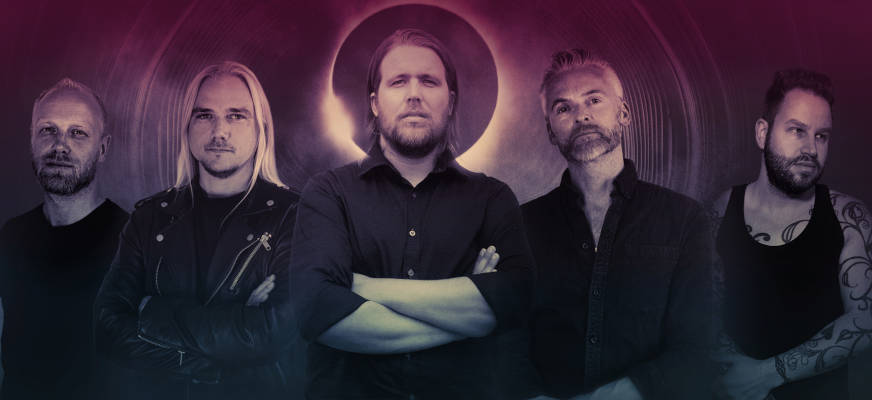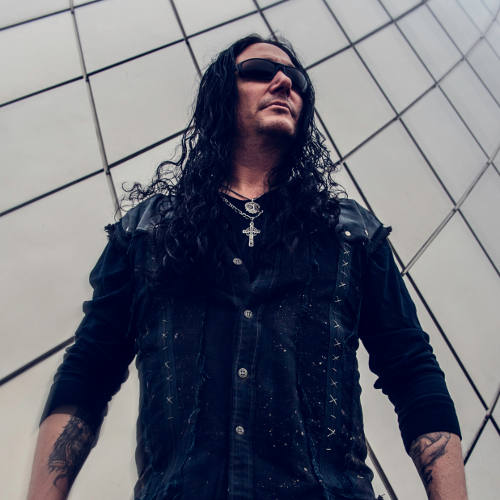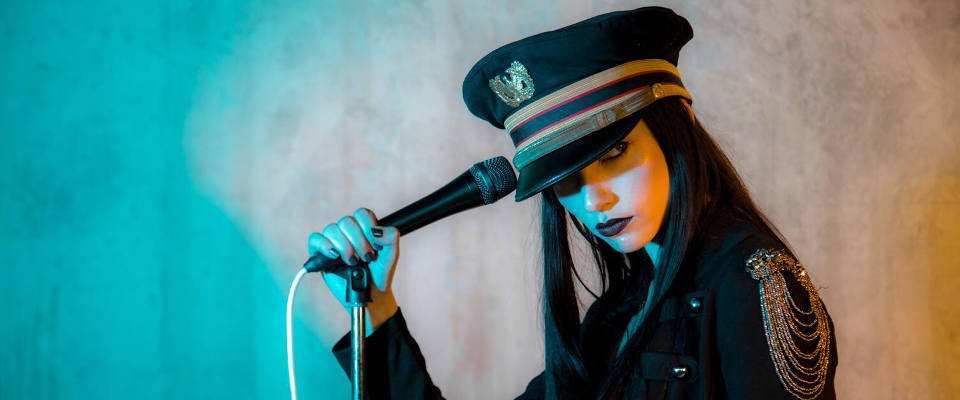by Alissa Ordabai
– Senior Columnist —
Exciting news is arriving this week from Tom Keifer’s camp announcing his first ever solo tour. In this interview I talk to Cinderella’s frontman about his influences and the notion of cultural succession in rock, but also about wider subjects such as artistic freedom and spiritual beliefs.
Tom Keifer is rightly regarded as one of the best songwriters of his generation. To this day he remains not only a unique singer but also an eloquent composer of vast emotional range. Keifer’s well-documented vocal problems which have put his career on hold for much of the Nineties have been overcome with great determination, which has recently led to the revival of his career.
We at Hardrock Haven are very excited to learn about Kiefer’s upcoming solo tour. After all, he has always been the not only the frontman, but sole songwriter within his band. Now seems to be the right time to share this previously unpublished interview conducted in June 2011 just a few hours before Cinderella’s performance at Shepherd’s Bush Empire in London – their first London show in 20 years.
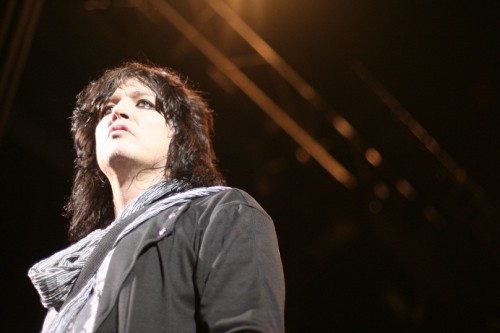 Alissa Ordabai: Were you ever in a position where you had to choose or compromise between making your music as accessible to an as wide audience as possible, but at the same time expressing your true entire self?
Alissa Ordabai: Were you ever in a position where you had to choose or compromise between making your music as accessible to an as wide audience as possible, but at the same time expressing your true entire self?
TK: We were lucky in the sense that we were not. When we signed our first record deal with Polygram Records, they gave us as much freedom as we wanted to do our thing, and we never really had this “You need to do this in order to have success.” We were never steered that way. So we’ve always done our thing, we’ve always had our freedom to do that, and we were very lucky because some bands don’t. The record company made suggestions: “Oh, that’s great,” or “That’s not us,” so nothing has been ever imposed on us. I felt like we’ve always been pretty true to making music that we love and what’s inside of us.
AO: But you relied heavily on tradition and on the generation that came before you – Seventies big visionaries like Jimmy Page and Tony Iommi, but at the same time you really captured the spirit of your time. How did you manage to combine tradition and to give a voice to your own generation?
TK: I guess it starts with a song, and I’ve always written about things that felt real to me. I come from a really heavy blues and roots background. My first exposure to that was through people like Jimmy Page and Keith Richards. They were what I call the second generation blues. They got it from the original place and kind of made it their own thing. I always tell the story that my first exposure to real blues was through a friend of mine who I was in the band with when I was a teenager, and he was a drummer, a few years older than me. He have me BB King’s “Live at the Regal”, and I’ve never heard the real blues, but I’ve heard Jimmy Page, and I was playing blues, even though I didn’t know it was called blues, imitating my rock heroes, and I put the record on, and I listened to it, and I turned to him, and said: “But he sounds like Jimmy Page!” And he started laughing at me, and said: “No, actually Jimmy Page sounds like him.” I was probably 16 or 17 then, and that’s when I really got that first realization that heroes have gotten it from somewhere else, and then, of course, I was very curious to go back, and I started digging back into all the roots music, into everything from R’n’B, blues, and gospel. I think it’s good for a musician and a songwriter to go back to do that. Not to just be influenced by your heroes, but to go and look what they liked too, because your vision gets broader and you can interpret in your own way. A lot of people call us a metal band. I guess some of ours stuff borderlines that, but to me we’ve always been a rock n’roll or a blues-based rock band. Not only musically, but lyrically, because our lyrics are about everyday life things. We are not singing about fantasy dragons or something. I am not making fun of that, I am saying that a lot of side that is more on the metal side – there is a lot of fantasy and stuff, and our lyrics are real day-to-day good times, bad times, love…
AO: Lust…
TK: Lust [Laughs], so that’s I think comes from that blues foundation, because that what all roots music was about. It was about real things. They may be singing about different real things, but they were real things.
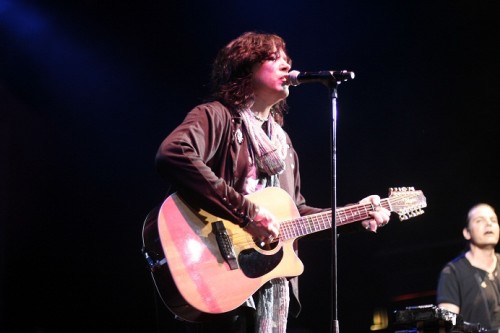
AO: Do you think it is easier being a rock musician these days than when you were growing up?
TK: No. I don’t think so. I think it’s harder as time goes on to have something new. [Laughs]. They try to come up with a unique sound because everything has been done. Trying to be original, I guess, gets harder as time goes on because there has been so much ground covered. And the industry has changed so much. I feel bad for new artists because record companies don’t support them. It’s kind of like you get one shot and there is no artist development because there is no money. Because they have lost so much through the internet, and download, and that kind of thing. They’ve lost billions of dollars. So that affects how the record companies do business and how they look at developing artists, and that’s sad. It’s kind of sad. Because you think the art as a whole is going to suffer from that in the long run.
AO: And the genre as a whole.
TK: Yes.
AO: I have my last question, and it’s a bit goofy, I hope you don’t mind.
TK: [Laughs]. Well, I’ll tell you after I hear it!
AO: [Laughs]. OK, deal! If you were granted a true answer to any question in the Universe, what would you ask?
TK: Wow! [Laughs]. After a 30-second pause: Wow! You can ask any question and you’re gonna get THE answer back?
AO: A true answer, yes.
TK: You’ve stumped me.
AO: A lot of musicians somehow usually ask if there is god, or what happens after you die.
TK: Well, that’s the first thing that’s come into my mind: “What’s next?,” you know?
AO: What do you think is next?
TK: Something awesome… [Smiles].
AO: We’ll all sit around and jam with Hendrix?
TK: [Long laugh]. I believe that there is something else. I don’t believe that we just hang here. I think that there is a spirit or an energy in life in each of us that just goes on into something else. I guess what I would want to know if I could have that answer, is “What is that? Where is this energy gonna go?”. Because I don’t believe that it’s over when… I would imagine that it would be the question that most people would have. I would think. I mean, it’s…
AO: … fundamental.
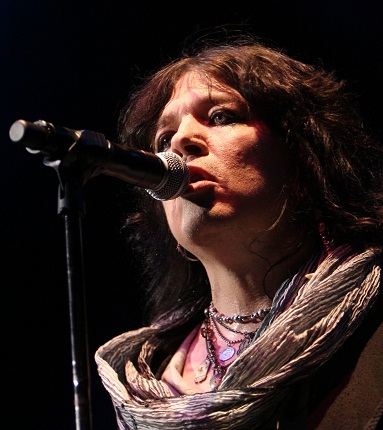 TK: Yeah! “Where am I heading?” [Laughs].
TK: Yeah! “Where am I heading?” [Laughs].
AO: But your music will live on regardless of what happens to your body or your particular soul. You’ve been blessed in this way.
TK: But you still want to know where your energy is going! [Laughs]. Maybe what we’ve created lives here, but where is the rest of us is going? I’d like to know where the rest of me is going! [Laughs]. That’s a good question. Very good.
AO: Thank you. And thank you ever so much for your time.
TK: You are welcome and thank you.
[Live photos by Alissa Ordabai]

